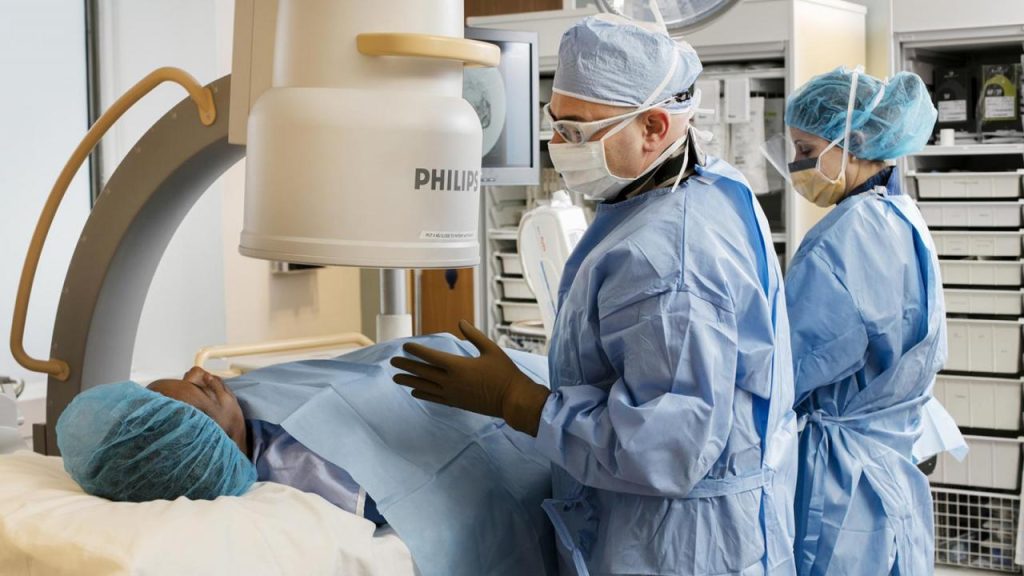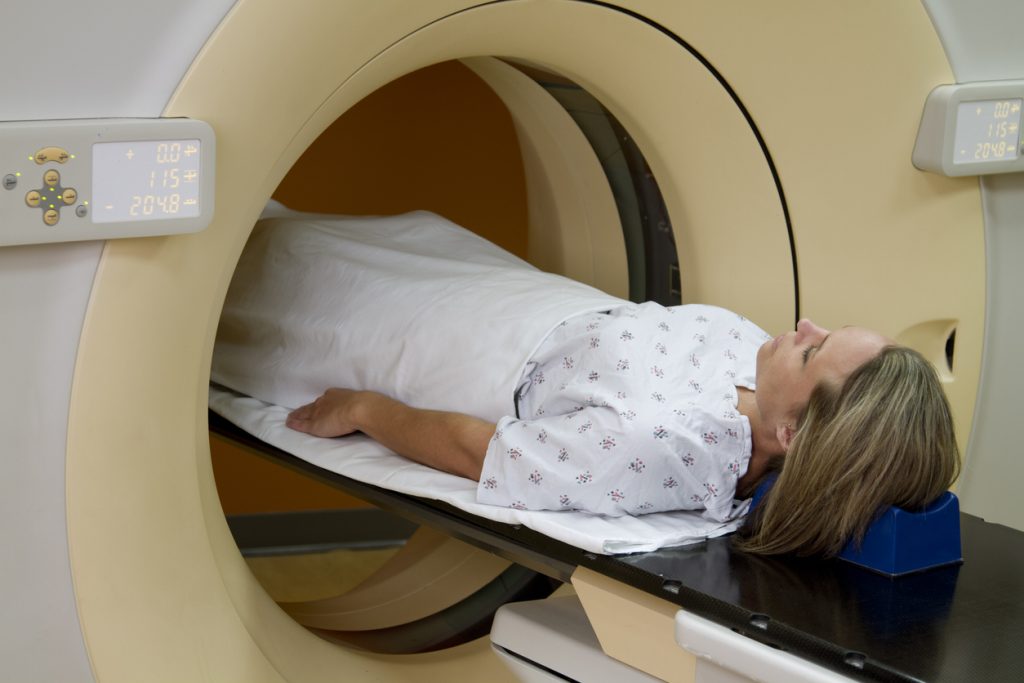How Radiation Therapy Works to Treat Cancer in Albuquerque
Intro
Radiation therapy Albuquerque is a critical part of treating cancer in the city. It works by using strong doses of radiation to destroy cancer cells, while also slowing their growth. It is a type of cancer treatment that has been proven to be effective in shrinking tumours, but unfortunately, healthy cells may also be destroyed in the process. In this blog post, we will explore how radiation therapy works to treat cancer in Albuquerque.
What is Radiation Therapy?
Radiation therapy Albuquerque is a type of cancer treatment that uses high doses of radiation to destroy cancer cells or slow their growth. Radiation therapy works by targeting the DNA of cancer cells, preventing them from dividing and spreading. This type of treatment can be used to shrink tumours, alleviate symptoms, and even cure some types of cancer.
Radiation therapy is administered using a variety of techniques, including external beam radiation therapy, internal radiation therapy, and systemic radiation therapy. The specific type of radiation therapy used depends on the type and stage of cancer being treated.
Radiation therapy can be an effective treatment option for many cancer patients, but it is not suitable for everyone. Factors that may impact whether or not a patient is a good candidate for radiation therapy include the location and size of the tumour, the type of cancer, the stage of cancer, and the patient’s overall health.
While radiation therapy can be effective, it can also cause side effects. Common side effects of radiation therapy include fatigue, skin irritation, and nausea. It’s important for patients to be aware of these potential side effects and to work closely with their healthcare provider to manage any symptoms.
In the next section, we’ll explore how radiation therapy works in more detail.

How Does Radiation Therapy Work?
Radiation therapy Albuquerque is a powerful tool in the fight against cancer. But how does it actually work?
Radiation therapy works by targeting and damaging the DNA within cancer cells. The DNA in these cells is responsible for their growth and division, so by damaging it, radiation therapy can either kill the cells or slow down their growth. This can lead to the shrinkage of tumors and ultimately, the control or elimination of cancer.
Radiation therapy is administered using high-energy radiation beams that are carefully directed at the tumor site. These beams can be delivered externally, from a machine outside the body, or internally, through the use of radioactive materials placed directly within or near the tumor. The choice of delivery method depends on the type and location of the cancer being treated.
One of the key advantages of radiation therapy is its ability to selectively target cancer cells while sparing healthy tissues. Although healthy cells in the treatment area may be affected, medical professionals take great care to limit the exposure and protect surrounding tissues.
Radiation therapy is often used in combination with other cancer treatments such as surgery or chemotherapy. It may be administered before surgery to shrink tumors or after surgery to kill any remaining cancer cells. Additionally, radiation therapy can be used as a palliative treatment to relieve symptoms caused by advanced cancer.
Overall, radiation therapy in Albuquerque offers a precise and effective way to treat cancer by destroying or slowing down the growth of cancer cells. It plays a crucial role in improving the outcomes and quality of life for patients battling this devastating disease.
Types of Radiation Therapy
There are several types of radiation therapy that can be used to treat cancer in Albuquerque. The choice of which type to use depends on various factors, including the type and location of the cancer, the size of the tumour, and the overall health of the patient.
External beam radiation therapy is the most common type of radiation therapy. It involves using a machine to deliver high-energy rays, such as X-rays or protons, to the targeted area. This type of therapy is typically delivered in small doses over several weeks to allow healthy cells to recover between treatments.
Another type of radiation therapy is brachytherapy, which involves placing small radioactive implants directly into or near the tumour. This allows for a more precise and localized delivery of radiation, minimizing damage to healthy tissues surrounding the tumour. Brachytherapy is often used for cancers of the cervix, prostate, and breast.
Stereotactic radiosurgery is a highly precise form of radiation therapy that uses multiple beams of radiation to target small tumours or specific areas within the brain. This type of therapy is often used for brain tumours and certain types of lung cancer.
These are just a few examples of the types of radiation therapy available for the treatment of cancer in Albuquerque. It’s important for patients to discuss with their healthcare team which type of therapy is best suited for their individual situation.
Who is a Good Candidate for Radiation Therapy?
Radiation therapy is a crucial treatment option for many individuals diagnosed with cancer. While the suitability of radiation therapy varies depending on the type and stage of cancer, there are several factors that can make someone a good candidate for this treatment in Albuquerque.
Firstly, individuals who have been diagnosed with early-stage cancers or localized tumors may be suitable candidates for radiation therapy. It is often recommended as a primary treatment for cancers such as breast, lung, prostate, and cervical cancer, where the tumor can be targeted directly with radiation beams.
Additionally, radiation therapy can be used as an adjuvant treatment for those who have undergone surgery to remove a tumor. It helps to eliminate any remaining cancer cells in the surrounding tissues, reducing the risk of recurrence.
Furthermore, radiation therapy may be beneficial for patients who are not eligible for surgery due to various reasons such as the location or size of the tumor, their overall health condition, or other medical limitations.
It is essential for individuals considering radiation therapy to undergo a thorough evaluation by a radiation oncologist. This specialist will assess factors such as the patient’s overall health, the type and stage of cancer, and the potential benefits and risks of radiation therapy. Through this evaluation, a personalized treatment plan can be developed to ensure the best possible outcome for the patient.
Ultimately, the decision regarding radiation therapy candidacy should be made in collaboration with the patient, their oncologist, and other members of the healthcare team, taking into account the individual’s unique circumstances and preferences.

Side Effects of Radiation Therapy
While radiation therapy is an effective treatment for cancer, it can also cause side effects. The side effects of radiation therapy vary depending on the type and dose of radiation used, as well as the area being treated. It is important to note that not everyone experiences the same side effects, and some may experience none at all.
Common side effects of radiation therapy include fatigue, skin changes, and hair loss in the area being treated. These side effects are usually temporary and improve over time. Other side effects may include nausea, vomiting, and loss of appetite. These side effects can often be managed with medications and dietary changes.
In some cases, radiation therapy can also cause long-term side effects. These may include changes in the texture and color of the skin, fibrosis (thickening and hardening of tissues), and secondary cancers. It is important to discuss potential long-term side effects with your healthcare team before undergoing radiation therapy.
It is worth noting that the benefits of radiation therapy often outweigh the potential side effects. Radiation therapy is carefully planned to target cancer cells while minimizing damage to healthy cells. Your healthcare team will closely monitor your treatment to ensure that any side effects are managed effectively.
If you experience any side effects during radiation therapy, it is important to communicate with your healthcare team. They can provide guidance on managing side effects and improving your overall comfort during treatment. Remember, everyone’s experience with radiation therapy is different, and your healthcare team is there to support you throughout the process.
Preparing for Radiation Therapy
Before undergoing radiation therapy in Albuquerque, there are some things you need to do to prepare yourself for the treatment. First, make sure you talk to your doctor about any medications you are currently taking and whether you need to adjust your dosage or stop taking them before treatment. You should also inform your doctor of any allergies or medical conditions you have.
In addition, you may need to make some changes to your lifestyle, such as quitting smoking or limiting alcohol intake. Your doctor will also advise you on the type of clothing you should wear during treatment.
It is important to eat well and stay hydrated before and during treatment to help your body heal and fight any side effects. You may also want to consider speaking to a mental health professional to help you manage any anxiety or stress related to the treatment.
Finally, it is important to have a support system in place to help you through the treatment process. Reach out to friends and family members who can offer emotional and practical support. With the right preparation, you can make radiation therapy a successful part of your cancer treatment in Albuquerque.

